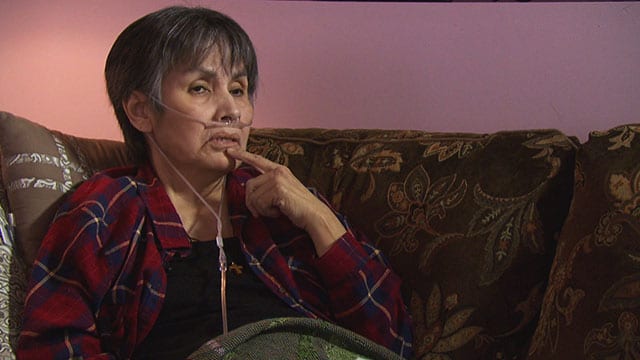
John Furlong makes a speech at the 2010 Winter Olympics in Vancouver.
The Canadian Human Rights Commission will investigate the way RCMP handled allegations of historical abuse against John Furlong, the former CEO of the 2010 Vancouver Olympics.
In a letter announcing its decision on June 5, the commission says “it is in the interest of justice” to review the 2012 case, which resulted in no charges against Furlong after complaints from former students of his.
The decision comes as a relief to Cathy Woodgate, one of the former residential day school students who still lives near Immaculata Roman Catholic Elementary School in the northern B.C. First Nation of Burns Lake.
“It’s about time we had a positive response,” Woodgate said via phone.
Woodgate is one of several former students, also known as survivors, who allege abuse complaints were not appropriately investigated by Prince George RCMP, as APTN Investigates reported in October 2017.
Furlong was a Roman Catholic missionary from Ireland working at Immaculata beginning in the late 1960s. However, he didn’t mention the teaching stint in his best-selling biography Patriot Hearts that was released after the 2010 Winter Olympics.
The survivors complained to the Canadian Human Rights Commission after RCMP closed the case in 2013 – and, they say – didn’t tell them.
“This complaint involves serious allegations of failure to investigate historical sexual abuse, racism, and conflict of interests,” the commission said in a decision attached to a letter to Woodgate she shared with APTN News.
The allegations have not been proven.

Cathy Woodgate was sent to Immaculata Catholic School in British Columbia as a young girl.
The conflict of interest comes from allegations, the students say, that two senior officers involved in the Furlong investigation were also senior officers in the Integrated Security Unit during the Vancouver Olympics.
The RCMP tells APTN it “has not been advised nor made aware of any decisions by the Canadian Human Rights Tribunal or Commission.”
In its decision, the commission says the RCMP tried to stop the review, arguing it would be “prejudiced” by the passage of time because “memories have faded and notes taken at the time do not necessarily still exist.”
The commission rejected that argument as “misleading and speculative.”
A spokesman said Furlong had no comment.
“The RCMP are the appropriate party to comment on a CHRC decision to investigate a complaint against them,” Chris Dornan wrote in an email.
“Mr. Furlong maintains his full innocence of all allegations against him, including those that were subject to RCMP investigation or ruled on in court findings, all of which were determined to be unsubstantiated.”
In its letter attached to the decision, the commission says either party can seek a “judicial review” in federal court 30 days after receiving the commission’s decision.










